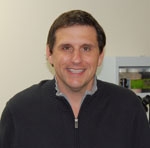When a postdoc applies for a position, safety experience might not end up in the curriculum vitae he or she submits, but it should. It likely will help land them the job. How is this possible?
It all stems from risk management and a recent string of laboratory accidents. Several prominent academic institutions such as Yale University, the University of California-Los Angeles and Texas Tech University have experienced dreadful laboratory injuries and deaths. Their images and funding are at stake now. They do not and cannot take chances any more. These institutions are much more likely to go with candidates who have some rigorous safety experience and training, like Argonne postdocs.
“Many academic laboratories remain well behind government and industrial laboratories in terms of safety training and oversight,” said Walter Henne, assistant professor of chemistry at Governors State University. “Safety deficiencies are even more striking at smaller institutions and many community colleges due to limited resources and trained safety personal.”
Henne serves as the safety advisor for the Chemistry Department at Governors. He also holds a guest research appointment at Argonne. According to Henne, government and industrial laboratories have extensive safety training programs that encompass far more information than one would receive in an academic environment. They also feature better safety oversight and more routine inspections.
This is an important point for postdocs who are considering careers in industry or academia. Their rigorous safety training and experience while at Argonne is a huge plus when applying for positions. Argonne’s safety training and demanding expectations of its researchers closely parallels those of other governmental and industrial laboratories. Having a rigorous, outside training refresher was crucial for Henne when he joined Argonne. As a guest faculty appointee he was required to complete a thorough safety training program.
“I found Argonne’s training is extensive and tailored to your area of work—this set-up is quite comparable to the type of training one would receive at a large industrial research laboratory or production facility.”
Henne was impressed with the level of documentation and the ability to monitor completed and pending training sessions, recommended training sessions and renewals at Argonne. Henne is currently in the process of exploring similar systems with his university’s safety coordinator to help improve Governors State’s chemistry safety program.
He especially wants to help faculty at his university address the challenges associated with the continuous flow of newly admitted students. Many of these students do not take safety seriously, a reoccurring problem with dire consequences.
“Transitioning into an industrial position will be far easier for an Argonne post doctoral researcher than for an academic trained post doctoral researcher,” said Henne. “It is quite simple in industry: you either perform to the set standards or your first paycheck will undoubtedly be your last.”
This is what makes Argonne’s postdoctoral community a valued and sought-after resource. So next time you apply for a position, make sure to highlight your governmental safety training and experience.
 Walter Henne holds a Ph.D. from Purdue University. His experience spans the government, academic and industrial spheres. In addition to working as an analytical chemist and pilot plant liaison at a large chemical production facility he also worked as a supervisor in a medical facility dealing with patient care. He currently holds a faculty position at Governors State University as an assistant professor of chemistry.
Walter Henne holds a Ph.D. from Purdue University. His experience spans the government, academic and industrial spheres. In addition to working as an analytical chemist and pilot plant liaison at a large chemical production facility he also worked as a supervisor in a medical facility dealing with patient care. He currently holds a faculty position at Governors State University as an assistant professor of chemistry.

